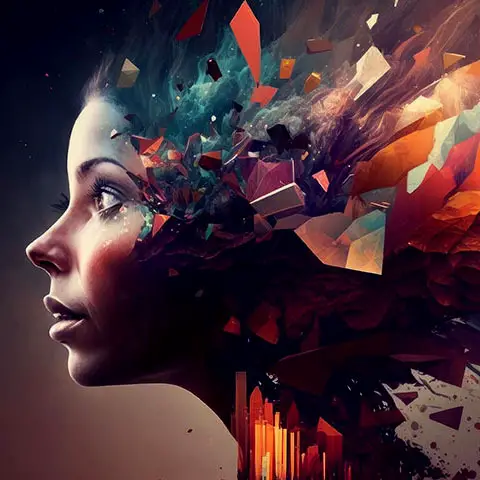Fact, Fiction or Inevitable?
With technology growing at an unprecedented rate many are asking if there will come a point where artificial intelligence will surpass human capabilities entirely. This theoretical scenario is known as the technological singularity.
We’re going to look at what this means for society and how it originated. We’ve consulted with leading academics who provide quotes and references that can help readers develop a nuanced perspective on the topic.
In essence technological singularity refers to a hypothetical future where our technology creates an artificial superintelligence (ASI) that outstrips human capabilities exponentially. Predicted repercussions include some unknown outcomes which could be positive or negative for society overall.
The concept has been around since mathematician and computer scientist Vernor Vinge popularised it back in 1993 through his essay The Coming Technological Singularity. “The end of the human era is looming ” warned Vernor Vinge in a 1993 essay about the technological singularity. This theory proposes that machines will eventually surpass human intelligence and fundamentally change our society.
Picture a world where computers are not just smarter than humans – they’re vastly more intelligent than we could ever imagine. This is the future experts predict with “the singularity” a point where artificial intelligence (AI) reaches self improvement beyond our capabilities and accelerates technological progress at an unprecedented rate. To achieve this scientists are working on developing AI systems with general intelligence – machines that can complete any intellectual task.
Once we achieve this level of sophistication the AI will analyse and improve its own hardware and algorithms at lightning speed. The impact on society would be huge, from new medical treatments to revolutionary technologies beyond what even our brightest human minds could conceive of today.

Photo by Mariia Shalabaieva on Unsplash.
Are you ready for the singularity?
Climbing new frontiers in areas like biotechnology, nanotechnology and energy production can bring about significant changes around us. Singularity represents one such phenomenon where merging humans with AI technologies appears inevitable now.
Brain computer interfaces and other futuristic tech advances may help reshape human intelligence for good, establishing a massive leap forward towards newer ways of living. This also means witnessing something beyond comprehension – a new kind of intelligent life thats a mix of machine and humans.
What might happen after singularity?
A post-singularity new world will have no resemblance to our current reality. The possibility of a highly intelligent organism coming into existence gets thrown up. But there’s no saying what form it would take since the nature of singularity is unpredictable.
While Gordon Moores observation on the doubling of transistors every two years has proven to be a useful tool for understanding technological progress some experts remain skeptical about the feasibility of ASI.
MIT professor turned roboticist Dr. Rodney Brooks argues that technology is not guaranteed to grow exponentially. According to the renowned AI expert, creating truly autonomous and intelligent machines presents a host of challenges that current technology has yet to overcome. As he wrote in a 2014 essay, “computational power and even computational intelligence will not automatically yield human level intelligence or anything close to it just as faster and faster airplanes did not yield the capability for space travel.” These limitations show that we still have a long way to go before achieving artificial superintelligence (ASI).
Elon Musk’s cautionary stance on artificial intelligence has garnered significant attention in recent years due to his position as CEO of SpaceX and Tesla. In a tweet from 2014 he issued a warning about AI stating “We need to be super careful with AI. Potentially more dangerous than nukes.”
This concern is echoed by philosopher Dr. Nick Bostrom who highlights in his book Superintelligence: Paths, Dangers, Strategies that creating an artificial superintelligence poses significant risks for humanity. He recommends investing in safe AI research to minimise these risks.
The world of technology is evolving at an unprecedented rate bringing with it new possibilities and opportunities that were once only found in our imaginations. From this fast-paced innovation emerges the theory of a technological singularity – an event that could shake humanity’s foundations to their core.
It is worth noting that while we currently possess groundbreaking advancements in artificial intelligence there is still much uncertainty about what this future era holds for us all. Given this situation it becomes apparent that researchers must take responsibility for ensuring that ethical implications are considered during AI development, and ensure a safe transition into coexisting with intelligent machines for everyone’s benefit.
Ultimately our ability to navigate these issues and utilise AI in constructive ways will determine if we eventually experience a technological singularity or not. One thing remains clear: These discussions are now more critical than ever before and require our full attention if we want humanity’s future existence guaranteed.




